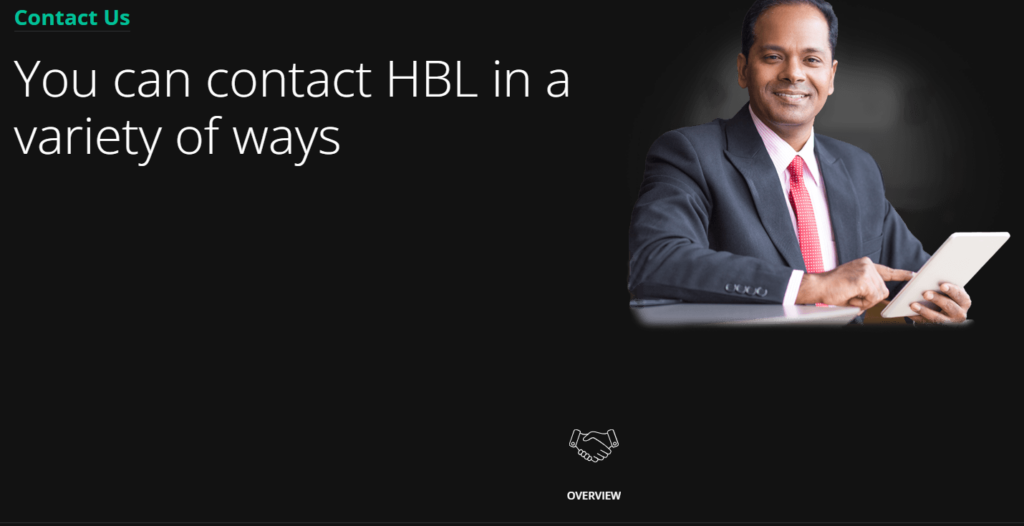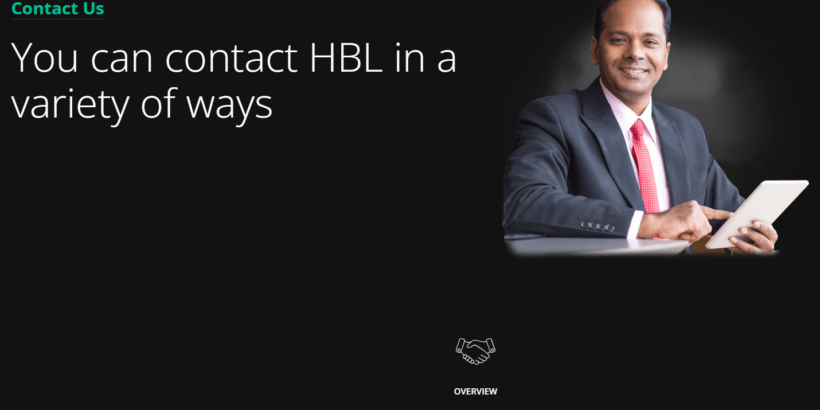Habib Bank Limited in Bangladesh: A Comprehensive Overview
Introduction
Habib Bank Limited (HBL) is one of the largest and most renowned banks in Pakistan, with a significant international presence. Among its various overseas operations, HBL has established a notable presence in Bangladesh. This article aims to provide an in-depth overview of Habib Bank Limited’s operations in Bangladesh, its history, services, impact, and future prospects.

[wptabs id=”14942″]
History of Habib Bank Limited
Habib Bank Limited was founded in 1941 by the Habib family in Bombay (now Mumbai), India. The bank’s primary mission was to serve the Indian Muslim community. Following the partition of India in 1947, HBL moved its headquarters to Karachi, Pakistan, and quickly became one of the leading banks in the country. Over the decades, HBL has expanded its operations internationally, establishing branches and subsidiaries across various countries, including Bangladesh.
HBL’s Entry into Bangladesh
HBL’s entry into Bangladesh is a significant milestone in the bank’s history. Bangladesh, being a rapidly growing economy in South Asia, presents numerous opportunities for financial institutions. HBL commenced its operations in Bangladesh to cater to the banking needs of both corporate clients and individual customers.
Establishment and Early Years
HBL started its operations in Bangladesh in the early 1970s. The bank set up its first branch in Dhaka, the capital city, which is the hub of economic activities in the country. Initially, HBL focused on providing traditional banking services such as deposits, loans, and trade finance.
Expansion and Growth
Over the years, HBL expanded its footprint in Bangladesh by opening additional branches in key cities like Chittagong and Sylhet. This expansion strategy was driven by the need to tap into the growing market of trade and commerce in these regions. HBL’s emphasis on customer-centric services and innovative financial products helped it gain a strong foothold in the competitive banking landscape of Bangladesh.
Services Offered by HBL in Bangladesh
HBL offers a comprehensive range of banking services in Bangladesh, catering to the needs of various customer segments, including retail banking, corporate banking, and trade finance. The following sections outline the key services provided by HBL in Bangladesh.
Retail Banking
Retail banking is one of the core areas of HBL’s operations in Bangladesh. The bank offers a variety of products and services to individual customers, including:
- Savings Accounts: HBL provides various types of savings accounts with attractive interest rates and features designed to meet the diverse needs of customers.
- Current Accounts: HBL offers current accounts for individuals and businesses, providing easy access to funds and a range of transactional services.
- Fixed Deposits: Customers can invest in fixed deposit schemes with competitive interest rates and flexible tenures.
- Personal Loans: HBL provides personal loans for various purposes, such as education, marriage, and medical expenses, with easy repayment options.
- Home Loans: The bank offers home loan facilities to help customers purchase or renovate their homes.
- Debit and Credit Cards: HBL’s debit and credit card offerings provide customers with convenient payment options and attractive rewards programs.
Corporate Banking
HBL has a strong focus on corporate banking in Bangladesh, providing a range of services to meet the financial needs of businesses. Key services include:
- Corporate Accounts: HBL offers customized banking solutions for corporate clients, including current accounts, cash management services, and payroll solutions.
- Business Loans: The bank provides various types of business loans, including working capital finance, term loans, and project financing.
- Trade Finance: HBL’s trade finance services include import and export financing, letters of credit, and trade guarantees, facilitating smooth international trade transactions for businesses.
- Treasury and Risk Management: HBL offers treasury and risk management solutions to help businesses manage their financial risks effectively.
Trade Finance
Trade finance is a crucial aspect of HBL’s operations in Bangladesh, given the country’s strong focus on international trade. HBL provides a comprehensive suite of trade finance services, including:
- Letters of Credit: HBL issues letters of credit to ensure secure and timely payment for international trade transactions.
- Import and Export Financing: The bank offers financing solutions to support importers and exporters in their business activities.
- Trade Guarantees: HBL provides trade guarantees to mitigate risks associated with international trade.
- Documentary Collections: The bank facilitates the secure exchange of trade documents between importers and exporters.
HBL’s Impact on the Banking Sector in Bangladesh
HBL’s presence in Bangladesh has had a significant impact on the banking sector and the broader economy. The following sections highlight some of the key contributions of HBL to the financial landscape of Bangladesh.
Financial Inclusion
HBL has played a crucial role in promoting financial inclusion in Bangladesh by providing accessible banking services to a wide range of customers. The bank’s efforts to expand its branch network and offer digital banking solutions have made banking services more accessible to people in both urban and rural areas.
Innovation and Technology
HBL has been at the forefront of introducing innovative banking solutions in Bangladesh. The bank’s investment in technology and digital banking platforms has enhanced the customer experience and improved operational efficiency. HBL’s mobile banking app and online banking services have made banking more convenient for customers, enabling them to perform transactions and access banking services from anywhere.
Supporting Economic Growth
HBL’s corporate banking and trade finance services have supported the growth of businesses in Bangladesh. By providing financing solutions and facilitating international trade, HBL has contributed to the expansion of various industries, including manufacturing, textiles, and agriculture. The bank’s support for small and medium-sized enterprises (SMEs) has been particularly impactful, helping these businesses grow and create employment opportunities.
Corporate Social Responsibility
HBL is committed to corporate social responsibility (CSR) and has undertaken various initiatives to support the community in Bangladesh. The bank’s CSR activities focus on areas such as education, healthcare, and environmental sustainability. HBL’s efforts to give back to the community have enhanced its reputation and strengthened its relationship with customers and stakeholders.
Challenges and Opportunities
Despite its successes, HBL faces several challenges in the Bangladesh market. However, these challenges also present opportunities for growth and improvement.
Regulatory Environment
The banking sector in Bangladesh is subject to stringent regulatory requirements. HBL must navigate these regulations to ensure compliance and maintain its operations smoothly. Staying updated with regulatory changes and adapting to new requirements is crucial for the bank’s continued success.
Competition
The banking industry in Bangladesh is highly competitive, with numerous local and international banks vying for market share. HBL must differentiate itself through superior customer service, innovative products, and competitive pricing to stay ahead of the competition.
Technological Advancements
The rapid pace of technological advancements presents both challenges and opportunities for HBL. While technology can enhance operational efficiency and customer experience, it also requires continuous investment and adaptation. HBL must stay ahead of technological trends to leverage new opportunities and address emerging risks, such as cybersecurity threats.
Economic Conditions
The economic conditions in Bangladesh, including factors such as inflation, exchange rates, and political stability, can impact HBL’s operations. The bank must closely monitor economic trends and adjust its strategies accordingly to mitigate risks and capitalize on growth opportunities.
Future Prospects
HBL’s future prospects in Bangladesh are promising, given the country’s strong economic growth and increasing demand for banking services. The following sections outline some of the key areas where HBL can focus its efforts to drive future growth.
Digital Banking
Digital banking is a significant growth area for HBL in Bangladesh. The bank can continue to invest in its digital platforms and enhance its online and mobile banking services to meet the evolving needs of customers. By offering seamless and secure digital banking experiences, HBL can attract more customers and improve customer satisfaction.
SME Banking
Supporting small and medium-sized enterprises (SMEs) is a strategic priority for HBL. The bank can develop tailored financial products and services to meet the unique needs of SMEs, including flexible financing options, advisory services, and digital tools. By empowering SMEs, HBL can contribute to economic growth and expand its customer base.
Sustainable Finance
Sustainability is becoming increasingly important in the banking industry. HBL can focus on sustainable finance by developing green financial products, supporting environmentally friendly projects, and incorporating sustainability into its lending practices. By aligning with global sustainability goals, HBL can enhance its reputation and attract socially conscious customers.
Customer Experience
Enhancing customer experience is crucial for HBL’s success in Bangladesh. The bank can invest in training and development programs for its employees to ensure high-quality customer service. Additionally, HBL can leverage data analytics and customer feedback to identify areas for improvement and deliver personalized banking solutions.
Conclusion
Habib Bank Limited has established a strong presence in Bangladesh, offering a wide range of banking services to retail and corporate customers. The bank’s commitment to innovation, financial inclusion, and corporate social responsibility has contributed to its success in the competitive banking landscape. While HBL faces challenges, such as regulatory requirements and competition, its focus on digital banking, SME support, sustainable finance, and customer experience positions it well for future growth. As Bangladesh’s economy continues to grow, HBL’s strategic initiatives and customer-centric approach will enable it to capitalize on emerging opportunities and maintain its position as a leading bank in the country.

